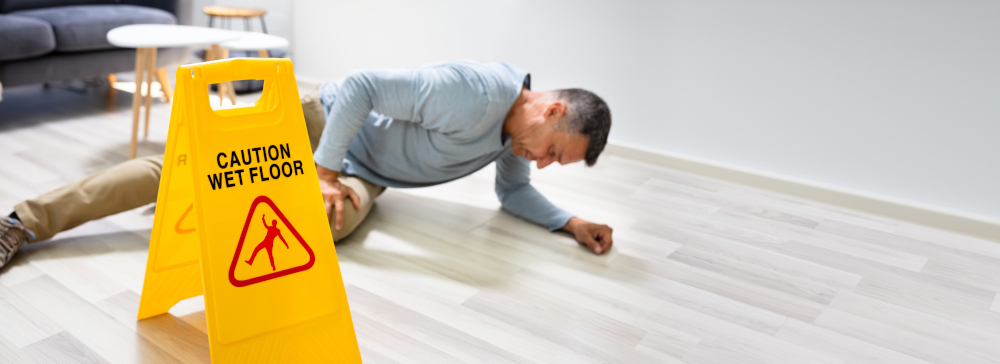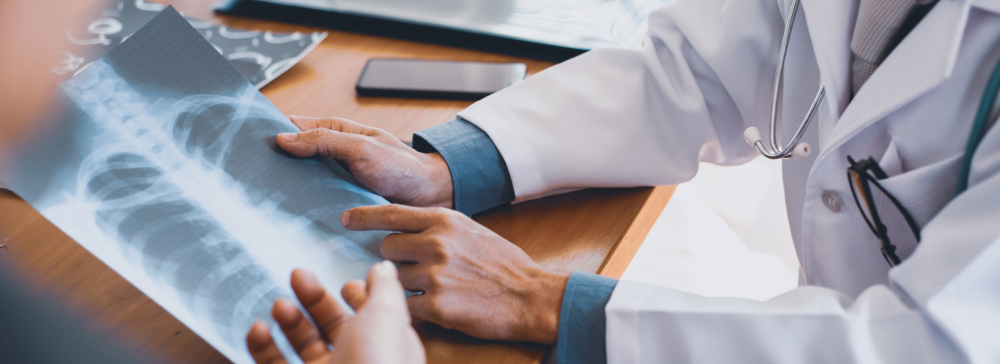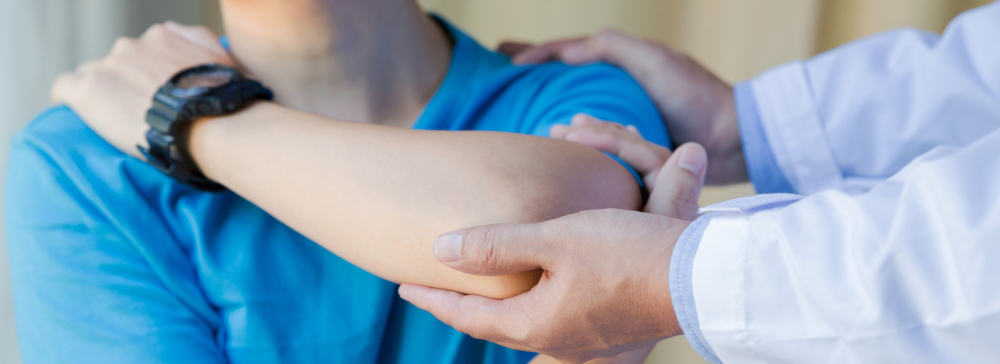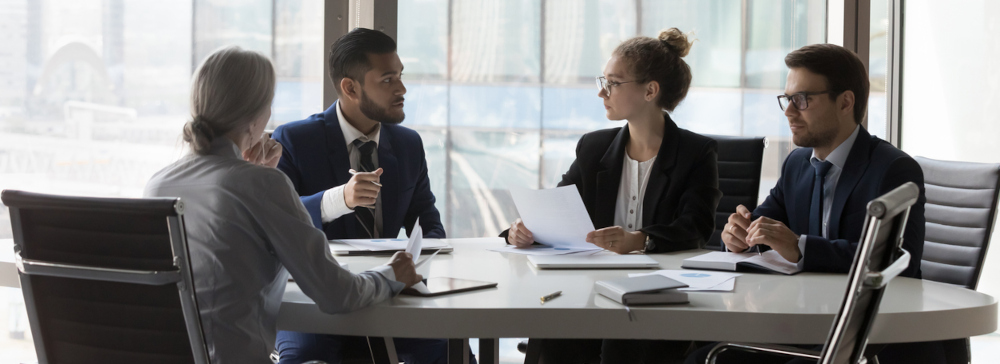Slip and fall accidents in Los Angeles movie theaters can happen due to wet floors, poor lighting, torn carpeting, or cluttered walkways, putting patrons at risk of serious injuries. Popular venues like AMC Theaters, Regal Cinemas, Alamo Drafthouse, New Beverly Cinema, and The Egyptian Theater attract large crowds, increasing the likelihood of spills and obstacles that can lead to accidents. In dark theater settings, hazards can be difficult to spot, and a simple misstep can result in broken bones, back injuries, or even traumatic brain injuries.
Theater owners are legally responsible for maintaining a safe environment; when they fail, injured guests may have grounds for a premises liability claim. At Salamati Law, we work tirelessly to obtain justice for our clients. From navigating the maze of medical bills and investigation to filing suit and arguing before a jury, a movie theater slip and fall lawyer will fight for your right to recover compensation. Contact us today to schedule a free consultation.
Common Movie Theater Trip and Fall Hazards

The most common hazards in movie theaters include the following:
- Debris in walkways: Movie theaters often have dim lighting and crowded aisles, making it easy for patrons to overlook debris on walkways that can lead to slip and fall accidents. Spilled popcorn, discarded soda cups, candy wrappers, and even torn ticket stubs can create hazardous conditions, especially when combined with slick or uneven flooring. Cleaning crews should regularly inspect and clear these walkways, but when theaters fail to promptly remove trash or warn guests of hazards, they may be held liable for resulting injuries.
- Poor lighting: Poor lighting in movie theaters poses a serious risk to patrons, particularly in walkways, aisles, and staircases where visibility is already limited. Dim, flickering, or non-functional lights make it difficult for guests to see potential hazards such as spilled drinks, uneven flooring, or scattered debris, increasing the likelihood of slips, trips, and falls. This is especially dangerous for older individuals, children, or people with mobility impairments, who may struggle to navigate safely in low-light conditions.
- Torn or bunched carpeting: Torn or bunched carpeting in movie theaters can create serious tripping hazards. Worn-out or improperly installed carpets can cause patrons to trip and suffer painful falls. The risk is even higher for those with mobility issues who may have difficulty navigating uneven flooring. Theater owners are responsible for regularly inspecting and repairing carpeting to ensure a safe environment for guests.
- Wet surfaces: Wet floors in movie theaters pose a significant slip-and-fall risk, particularly in lobbies, restrooms, concession areas, and aisles where spills are common. Drinks, melted ice, and condensation from air conditioning can create unexpected hazards, especially in dimly lit theaters where patrons may overlook the danger. Inadequate maintenance, e.g., failing to mop up spills promptly or neglecting to place warning signs, increases the risk of serious injuries like sprains, fractures, and head trauma.
Is a Movie Theater Liable for Injuries Resulting from Slip and Fall Accidents?

In a movie theater slip and fall accident, the burden is on the plaintiff, or injured party and their attorney to prove the following four elements of negligence:
- Duty of care: The property owner owed you a duty of care.
- Breach of the duty of care: The property owner breached their duty of care.
- Causation: The plaintiff must show that this breach was a direct cause of their injury. For example, a spilled drink caused them to slip and fall.
- Damages: The plaintiff suffered compensable damages, including medical bills, lost wages, and pain and suffering.
Defendants in slip and fall cases may claim the plaintiff was responsible for their injuries. Such allegations may include wearing inappropriate footwear, talking or texting on the phone, and not paying attention to where they are going. This underscores the importance of consulting an experienced lawyer to effectively counter these arguments.
How Pure Comparative Negligence Can Affect a Claim

Even if you are partly responsible for your slip-and-fall accident, that does not mean you cannot receive compensation. California is a pure comparative negligence jurisdiction regarding liability. That means you may still collect damages as long as you are not 100 percent responsible for the fall. However, the amount of your compensation is reduced by your percentage of fault, as determined by a judge or jury. For instance, if it is decided you were 30 percent at fault, a $100,000 award is reduced to $70,000.
Common Slip and Fall Injuries

The most common injuries in a slip and fall in a movie are the following:
- Back or Neck Injuries. Slipping on a wet floor or tripping over torn carpeting can cause whiplash, herniated discs, or spinal misalignment, leading to chronic pain and mobility issues. Severe neck or back injuries may require physical therapy, medication, or even surgery, significantly impacting a victim’s quality of life.
- Broken Bones. A hard fall onto a theater’s concrete or tile floors can result in fractured wrists, arms, hips, or ankles, especially when patrons instinctively try to break their fall. Broken bones often require casts, surgeries, and extended recovery periods, making them one of the most serious slip and fall injuries.
- Soft Tissue Injuries. Strains, sprains, and ligament tears occur when a sudden, forceful movement stretches or twists the body unnaturally. While these injuries might not be immediately visible, they can cause swelling, pain, and long-term mobility issues if not properly treated.
Traumatic Brain Injuries (TBI). A fall on a hard surface can lead to a concussion or more severe brain trauma, especially if the victim strikes their head on the floor, seats, or handrails. Symptoms like dizziness, memory loss, and headaches can persist for weeks or months, requiring extensive medical evaluation and treatment.
What Should I Do After a Slip and Fall in a Movie Theater?

After a slip and fall in a movie theater, the first step is to seek medical attention, even if your injuries seem minor, as symptoms may appear later. Report the incident to management and request that they document the accident in an official report, ensuring the fall’s time, location, and cause are correct. If possible, take photos or videos of the hazard that caused your fall, such as wet floors, torn carpeting, or poor lighting, and gather witness contact information in case their statements are needed later.
Next, avoid speaking with insurance adjusters or signing any documents from the theater before consulting a personal injury attorney. A lawyer can help you understand your legal rights and determine whether you have a valid premises liability claim for compensation. Keep copies of all medical records, accident reports, and receipts for expenses related to your injuries, as they can be crucial in proving your case. Taking these steps promptly can help protect your right to compensation for medical bills, lost wages, and pain and suffering. Members can file a wrongful death lawsuit against those responsible for their loved one’s demise.
Contact Salamati Law for a Free Consultation

If you or someone you know was seriously injured in a Los Angeles movie theater slip and fall accident, you need the services of an experienced slip and fall lawyer in Los Angeles at Salamati Law. Schedule a free, no-obligation consultation today. Because we work on a contingency basis, you pay no legal fees unless you receive compensation.